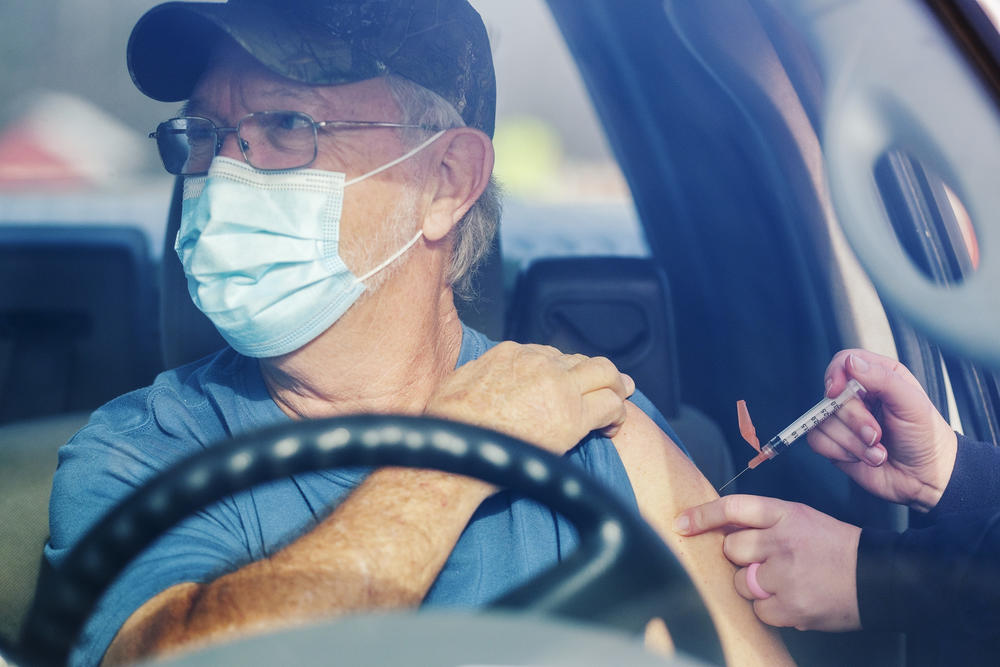
Caption
Bob Sapp gets vaccinated against COVID-19 in Cochran, Ga. on Monday January 25, 2021. The South Central Health District which includes Cochran was on pace to vaccinate as many as 300 people at the six hour vaccination event where Sapp was able to make an appointment.
Credit: Grant Blankenship/GPB News


